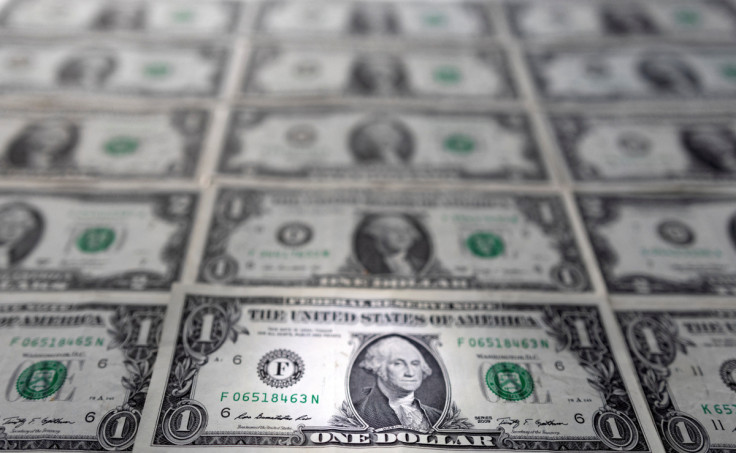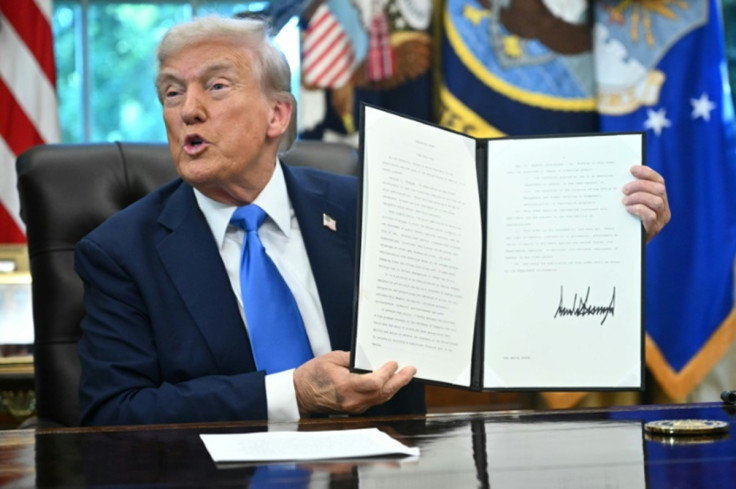Inflation Shock Looms: Prices Set to Hit Highest Level in a Year as Trump Tariffs Spark Economic Panic
Trump-era tariffs push inflation to its highest level in a year, raising fears of consumer price shocks

The United States is bracing for its highest inflation reading in over a year, as fresh data expected this week reveals the economic fallout from President Donald Trump's sweeping tariff regime.
Economists had anticipated a year-on-year inflation rate of 3.1% for September 2025, up from 2.9% in August. The actual rate came in slightly lower at 3.0%, marking the steepest rise since May 2024.
The inflation spike comes amid growing concern over the impact of Trump's trade policies, which have introduced the highest average tariff rates since the 1930s.
According to the Tax Foundation, retail prices have surged by 4.9% points due to the new tariffs, with imported goods rising by 6% and domestic goods by 4.3%.
The inflation report arrives at a precarious moment for the US economy, which is showing signs of stagflation—a toxic mix of rising prices and slowing job growth. The government shutdown has delayed key economic data releases, further fuelling uncertainty in financial markets and complicating the Federal Reserve's policy response.
Trump's Tariff Strategy Under Scrutiny

Since the start of his second term in January 2025, President Trump has expanded tariffs on imports from nearly all global partners. The administration has invoked emergency powers under the International Emergency Economic Powers Act and Section 232 of the Trade Expansion Act to justify the measures.
While the White House maintains that the tariffs are intended to protect American industries and reduce reliance on foreign supply chains, economists warn of unintended consequences. Research indicates that consumers are shouldering much of the resulting price increases, casting doubt on the administration's claims.
Mixed Signals from the Private Sector
Despite headline inflation figures, some economists argue that the worst may be short-lived. Jeffrey Roach, Chief Economist at LPL Financial, told Benzinga that businesses are increasingly absorbing tariff costs to avoid losing market share, which could temper inflation in the medium term.
Roach expects the Federal Reserve to begin easing interest rates, with cuts projected for October, December, and early 2026. He noted that corporate profits may come under pressure from margin compression, even if consumer prices stabilise.
Strategic Sectors and Supply Chain Shifts
The tariffs have had a pronounced impact on strategic sectors such as pharmaceuticals, copper, and energy. Import duties on some goods have reached historic highs, with China facing a combined tariff rate of 145%, the highest since the Smoot–Hawley Tariff Act of 1930.
While domestic mining and manufacturing have seen a boost, consumer costs have risen sharply. The Yale Budget Lab estimates that the average American household will pay an additional $2,300 (around £1,730) in 2025 due to tariff-related price increases.
Global Repercussions and Trade Retaliation
Retaliatory tariffs from China, Canada, and the EU have further strained US export competitiveness. Export prices fell by 0.9% in May 2025, widening the trade deficit and prompting concerns about long-term economic resilience.
Investors are now pivoting towards tariff-protected sectors, while import-reliant industries face mounting pressure. Analysts warn that sustained inflation risks could reshape investment strategies and consumer behaviour well into 2026.
Outlook: Policy Uncertainty Ahead
As inflation climbs and economic anxiety deepens, all eyes are on the Federal Reserve's next move. The central bank faces a delicate balancing act: curbing inflation without triggering a recession. Meanwhile, the Trump administration shows no signs of reversing its tariff stance, setting the stage for continued volatility.
With prices set to hit their highest level in over a year, the inflation shock is more than a statistical blip; it reflects deeper structural tensions in the global economy.
© Copyright IBTimes 2025. All rights reserved.



















